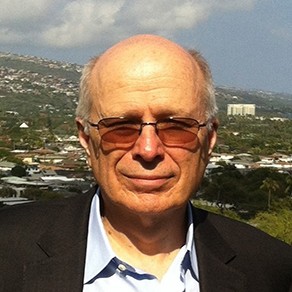Dr. E. William Colglazier, Representative of UN Secretary General for the promotion of science, technology and innovation, will deliver a lecture on On the role of the natural sciences, social sciences, and humanities in advising governments, advancing diplomacy, and achieving sustainable development, at SWPS University in Warsaw, on November 15, 2016.
Lecture
November
15 2016
Warsaw
The Role of Science in Policy Making, Diplomacy and Sustainable Development
The scientific community has seen its policymaking influence rise worldwide over the past two decades. Researchers advise on decisions relevant to the scientific enterprise and on key issues from agriculture and environment to security, crime and economic growth.
For example, the US National Academies of Sciences, Engineering, and Medicine provide more than 200 expert studies each year, mainly requested by the US government, on these topics and more. Science, engineering and medical academies and other scientific institutions provide similar advice, individually and collectively. The United Nations has recognized the importance of this kind of exercise, and is strengthening its science policy interface to help leverage science, technology and innovation to achieve the 17 sustainable development goals of its 2030 agenda.
To support the achievement of these goals, the science community and governments should work together to build better science advice systems, including advisers who report to heads of state, advisory committees of non-governmental scientists and technologists advising various ministries, and people with scientific and technical backgrounds serving as civil servants.
Providing objective, high-quality advice that is free of politics and special interests is an important civic responsibility for the science community.
About the Speaker

Dr. E. William Colglazier is Editor-in-Chief of Science & Diplomacy and Senior Scholar in the Center for Science Diplomacy at the American Association for Advancement of Science (AAAS).
He received his Ph.D. in theoretical physics from the California Institute of Technology in 1971, and prior to 1994 worked at the Stanford Linear Accelerator Center, the Institute for Advanced Study in Princeton, the Center for Science and International Affairs at Harvard’s Kennedy School of Government, and the University of Tennessee. While at Harvard, he also served as Associate Director of the Program in Science, Technology, and Humanism of the Aspen Institute. He is past chair of the Forum on Physics and Society of the American Physical Society (APS) and a Fellow of the AAAS and APS.
He served as the fourth Science and Technology Adviser to the Secretary of State from 2011 to 2014 to provide scientific and technical expertise and advice in support of the development and implementation of U.S. foreign policy. From 1994 to 2011, he was Executive Officer of the U.S. National Academy of Sciences (NAS) and the National Research Council (NRC) where he helped to oversee the studies that provide independent, objective scientific advice on domestic and international public policy issues.
In 2016, he was appointed by the UN Secretary General as one of the ten international members to support the Technology Facilitation Mechanism to promote the role of science, technology, and innovation for achieving for the 2030 Agenda for Sustainable Development.
Organizers

Time and Location
Tuesday, November 15, 2016, 14.00–15.30
SWPS University, Prof. T. Tomaszewski Lecture Hall, Nr 214
Chodakowska 19/31, Warsaw
Lecture open to the public. Free entry.